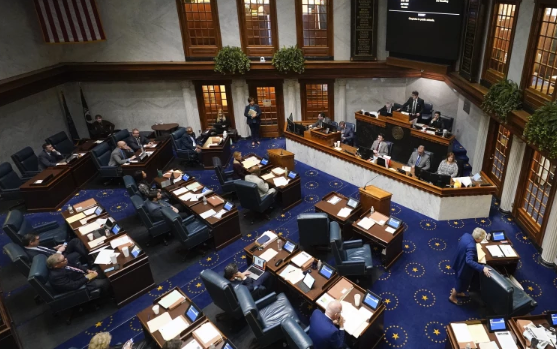Associated Press
INDIANAPOLIS — Indiana lawmakers are considering legislation that would require school boards to approve all lessons and materials on sexuality and require schools to publicly post a list of the teaching material on their websites, prompting concerns over who has the final say in sex education and the definition of sexuality.
State senators passed the bill Tuesday by a vote of 38-10. It now moves to the House for consideration, where Republicans also hold a supermajority.
The bill would require school boards to approve by July 1 all materials used to instruct students on “human sexuality,” author of the bill and state Sen. Gary Byrne told lawmakers Tuesday. Byrne told senators he intended to make sex education more transparent for parents.
Schools would also be required to post a list of the materials to their websites and the board must approve what age students will receive instruction, whether students will be taught in a co-ed setting and whether the lesson will be provided by a male or female instructor.
According to a state law passed last year, instruction on “human sexuality” already is prohibited from prekindergarten through the third grade.
“As a former school board member, I think putting the local school boards in the driver’s seat on this issue makes good sense,” Byrne said. “And they are elected by the voters.”
However, the bill does not define “human sexuality,” and Byrne said the definition would be left to school boards. Democratic state Sen. J.D. Ford warned that ambiguity could have a negative impact on LGBTQ+ students if the definition is not defined by the state.
“This bill, simply put, allows Moms for Liberty direct access to see what’s going on so they can go to their local boards and fuss at them,” Ford said.
Moms for Liberty is a national conservative group known for challenging curriculum such as material on LGBTQ+; diversity, equity and inclusion and racial justice topics and working to pack local school boards with its endorsements.
Democrats, who are in the super minority in the Senate, objected to placing school board members in control of material rather than educators and parents. Byrne said the law increases local control rather than establishing statewide mandates on the topic.





